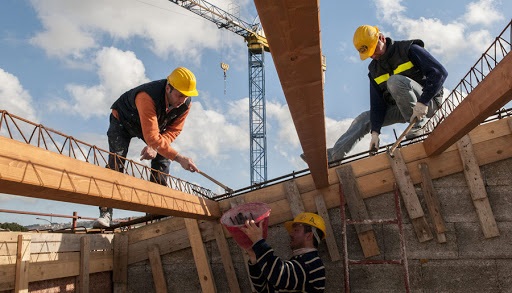
The tender process is a vital part of any construction project.
The point of issuing a tender is to ensure that the best value contract is awarded for the works required.
This does not mean that the cheapest price should be awarded, as there are many factors involved in determining what constitutes best value. If a project follows all of the correct steps, then it will ultimately result in an efficient use of resources and reduced risk due to future claims arising from defective workmanship or materials supplied by contractors who do not meet required quality standards.
What is a tender process?
A tender process is a competition to select a contractor to carry out construction works.
The Project Architect will issue an invitation for tenders, which will describe the work required and give details of how to submit a bid.
Bidders usually include contractors, sub-contractors and suppliers of materials.
For common home improvement projects usually the bidders are main contractors who will then be responsible of managing the sub-contracts, e.g. electricians or gas technicians.
Together with the client we will consider and review all bids received and choose the best option that meets their requirements in terms of budget, quality, time and any other criteria outlined in the tender documents.
How to deliver a successful project on time and within budget?
The tender process is a critical step in the project delivery. It ensures that the construction of your project is done correctly and makes it easier to deliver on time and within budget, at the right level of quality required.
In order to execute a successful tender process, we must ensure to have produced a detailed scope of work, well-established budget and schedules, and accurate drawings.
A good tender process starts with a clear scope of work.
This is the most important part of the tender process because it establishes what needs to be built and how much it should cost.
To ensure that this step goes smoothly we apply our experience and knowledge to break down the works, comparing your project with other projects like yours that were completed successfully, so we have a precise idea for what to expect for the kind of works required.
Then we use this information to create a detailed scope of work so that everyone involved knows exactly what’s expected from them at every stage in the project (and doesn’t have any surprises later down the road).
Preparation is key.
Understand a project to get things right.
Whilst a tender is a process that allows you to choose the best contractor for the job and get the best value for money, in order to deliver a project successfully, it’s important to prepare correctly.
This is why we must ensure that everyone understands the project in detail and is able to evaluate the timeline to deliver it.
It’s also important to clarify any questions that may arise during this process. By asking us and making sure they understand what we’re trying to accomplish, all bidders have a full picture of the project and of our expectations.
In order to execute a successful tender process, Architects must ensure they have produced a detailed scope of work, well-established budget and schedules, and accurate drawings.
Scope of work
A good tender process starts with a clear scope of work.
This is the most important part of the tender process because it establishes what needs to be built and how much it should cost.
To ensure that this step goes smoothly we apply our experience and knowledge to break down the works, comparing your project with other projects like yours that were completed successfully, so we have a precise idea for what to expect for the kind of works required.
Then we use this information to create a detailed scope of work (or schedule of works – SoW) so that everyone involved knows exactly what’s expected from them at every stage in the project.
Without surprises later down the road.
What could go wrong if a tender is not carried out?
Small projects like the makeover of a bathroom or simple decorations won’t demand a full tender process, being sufficiently straightforward and easy to manage, a clear negotiation with a vetted contractor could be sufficient.
But more extensive and expensive works require a clear outline of taskt and responsibilities to reduce risks and contingencies.
We usually recommend to issue a detailed tender already for full house renovations, extensions, loft or garage conversions.
Because if a tender is not conducted, the project could go over budget, be delayed and jeopardize its quality.
The contractor may not be able to meet the deadline or schedule; these delays can be costly and cause disruption to your daily life, whether you are living in the property during the works and have to tolerate noise and dust or if you are staying somewhere else and perhaps have to pay a rent.
They may not have enough experience in this field and might not be able to meet your expectations. These could lead to poor-quality workmanship.
There’s no guarantee that they’ll do all the work you want them to; some contractors will take advantage of your inexperience or low level of details and charge extra fees for works which were not outlined or not clear at first glance.
This is why we always vet the contractors we work with through a strict process and ensure they have the skills and capacity for any tender they are invited to bid for.
What happens when a tender is concluded?
After bids for a tender are received and reviewed, it is time for you to appoint a contractor to carry out the works, which means to enter into a contract with them.
We are able to manage the tender process from start to finish. This will give you confidence that it has been carried out in line with your requirements and ensures that there is no scope for any misunderstandings about what was required during the bidding process.
It would be an oversight not including a reference in the contract to all the specifications and documents. This is why to complete this stage we assist in preparing the contract among the parties and make sure all the important things are covered.
Once this is prepared, it is time to get ready for the sledgehammers on site.
How can I protect the value of my property undergoing a renovation?
Your home is important and renovating or extending is a crucial decision.
Use an experienced team of professionals to make sure you do not fall victim of common mistakes or unexpected complications.
Contact us and book a free consultation to talk about your ideas.
It’s as simple as clicking on this link and book your call back at your convenience.
“By failing to prepare, you are preparing to fail.” – B. Franklin




